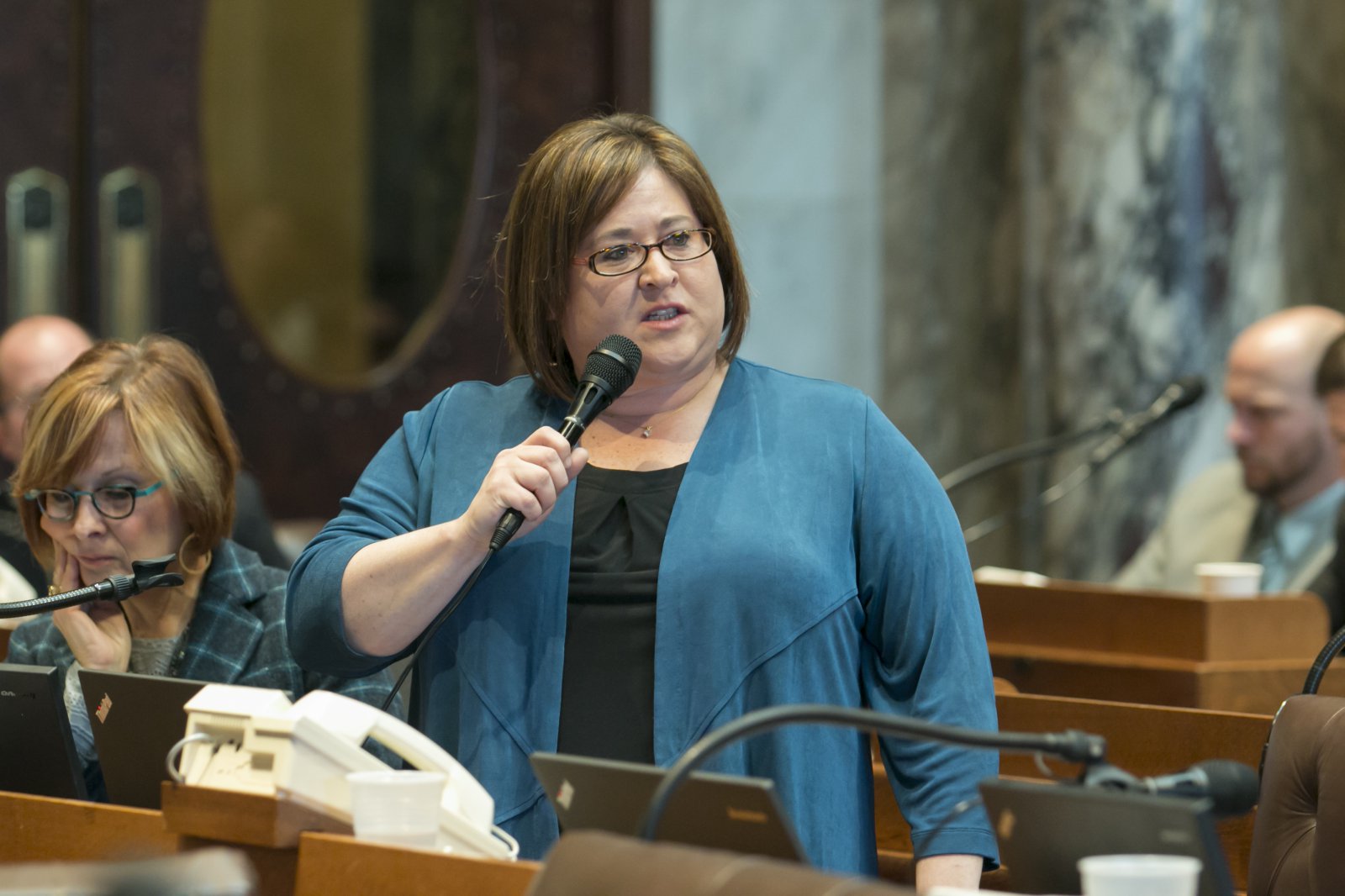Representative Subeck Testifies on Bill to Limit Shackling of Incarcerated Women during Labor and Childbirth
"We must put an end to this inhumane practice."
MADISON – Today, Representative Lisa Subeck (D-Madison) will testify before the Senate Committee on Judiciary and Public Safety on Senate Bill 393, authored by Senator Lena Taylor (D-Milwaukee) and Representative Subeck. SB 393 would restrict shackling of incarcerated women during labor and childbirth and would ensure incarcerated women have access to needed maternal support services including the supplies for pumping breast milk, postpartum health care, and testing for pregnancy and sexually transmitted diseases. The legislation was introduced in response to reports of multiple incarcerated women being shackled while in labor in Milwaukee County. Federal facilities and 18 states already have policies that prohibit or restrict shackling pregnant women.
“I was horrified to learn that in a lawsuit against Milwaukee County, one woman described being handcuffed and shackled throughout 21 hours of labor, and another described giving birth with her wrists handcuffed to her waist and connected to her legs,” Rep. Subeck will tell the committee. “We must put an end to this inhumane practice. No woman should be unnecessarily restrained during labor and childbirth, and no baby should be born to a mother in shackles.”
Representative Subeck’s full testimony to the Committee:
Thank you for the opportunity to testify on Senate Bill 393, which would restrict shackling of pregnant women and provide needed resources for new moms who are incarcerated.
In Wisconsin, there is currently no statutory guidance on how prisons and jails can restrain pregnant women while federal facilities and 18 states have policies that prohibit or restrict shackling pregnant women. This undefined area in state law has led to some outrageous instances of pregnant women being shackled during childbirth.
Recently, there was a lawsuit in Wisconsin regarding 40 women that were allegedly shackled while giving birth. One woman claimed she was shackled and handcuffed during labor that lasted 21 hours. Another woman was giving birth while her wrists were handcuffed to her waist and connected to her legs. When medical staff asked the handcuffs and shackles be removed, the correctional officers present declined to do so, and the woman had to receive an epidural and give birth to her child all while completely handcuffed and shackled.
While these instances have been well documented and reported on due to the lawsuit, there are certainly many more instances not so well documented. Therefore, we do not know the full extent of imprisoned women being shackled while giving birth. Whatever the number of imprisoned women shackled during labor, we must put an end to this inhumane practice. No woman should be unnecessarily restrained during labor and childbirth, and no baby should be born to a mother in shackles.
SB 393 would create the much needed statutory guidance on when corrections officers may shackle pregnant women and limit the practice to only when absolutely necessary to preserve safety. The bill would also give incarcerated women access to much needed maternal support services including the ability to pump breast milk for their babies, helping get their children off to a healthy start. Finally, the bill would expand voluntary STI testing in correctional facilities, which will increase early detection and decrease the risk of transmission to a pregnant woman’s child.
Thank you again for your time and your consideration of Senate Bill 393. I would be happy to answer any questions.
NOTE: This press release was submitted to Urban Milwaukee and was not written by an Urban Milwaukee writer. While it is believed to be reliable, Urban Milwaukee does not guarantee its accuracy or completeness.
Mentioned in This Press Release
Recent Press Releases by State Rep. Lisa Subeck
Rep. Lisa Subeck Joins Governor’s Call to ‘Get to Work’ for the People
Jan 12th, 2021 by State Rep. Lisa SubeckDemocrats are ready to put people first on Wisconsin’s road to recovery






















